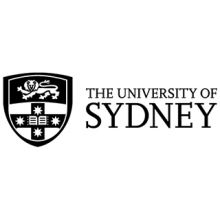Australia plans to introduce an adapted version of its performance-based funding scheme specifically for education degrees, amid hand-wringing over sliding standards in the country’s schools.
Acting federal education minister Stuart Robert has committed to “strengthen the link between performance and funding” of initial teacher education (ITE) degrees, as recommended by a review led by former Education Department secretary Lisa Paul.
As a first step, Mr Robert has appointed University of Sydney vice-chancellor Mark Scott – who previously headed the New South Wales Education Department – to chair a panel developing new “threshold standards” for ITE courses.
Professor Scott’s panel will also be asked to advise the government on how the thresholds could be applied to funding settings.
Ms Paul’s review has already sketched how such a system might work. Institutions that score highly on a yet-to-be developed “quality measure” will be allowed to deliver education degrees to “a greater number of students”, with government-funded places doled out to the best-performing universities.
An alternative approach would be to allow universities that have high quality ratings and also meet unspecified “programme criteria” to “tender” for extra teaching places.
Either method would be a major departure from current practice, with universities enjoying considerable autonomy in how many places they offer in almost all courses – let alone staple degrees such as education. Currently, medicine is the only “designated course” for which institutions receive specific allocations.
The proposal also runs counter to the greater flexibility universities were afforded in 2020, when new rules allowed them to expend their teaching grants in any combination of master’s, bachelor’s, diploma and enabling courses – and even trade unused grants with other institutions.
“This would be a significant change for higher education providers,” Ms Paul’s panel acknowledged, but Mr Robert said it was warranted. “Parents deserve the reassurance that people graduate from university…with the skills and knowledge to hit the ground running when they get into the classroom,” he said.
The proposal is the latest government intervention into universities’ teacher training courses, following Canberra’s 2016 introduction of a literacy and numeracy test on the recommendation of a ministerial advisory group. All teaching students must pass the test before they graduate.
In 2019, Victoria’s government ruled that students wanting to study teaching must have achieved Australian Tertiary Admission Ranks of at least 70 – an approach that the federal Labor opposition vowed to emulate if it won government.
The changes were introduced amid alarm over Australia’s declining results in the Programme for International Student Assessment, a global test of the abilities of 15-year-old school students, with scores deteriorating in reading, science and, particularly, mathematics.
Experts worry that increasing political control could foster risk-avoidance in universities, with administrators focused on compliance rather than innovation in course delivery.
But a report from the Centre for Independent Studies thinktank backed the interventionist approach. “As the primary regulator of the university sector, the federal government can use its funding leverage to monitor the content within ITE qualifications,” said author Glenn Fahey, formerly an education governance consultant with the Organisation for Economic Cooperation and Development.
“Failure to meet current standards of commitment to evidence-based teaching practices should be met with intervention.” This could include “defunding” by confiscating teaching grants or tweaking the formula for performance-based funding, he said.
Register to continue
Why register?
- Registration is free and only takes a moment
- Once registered, you can read 3 articles a month
- Sign up for our newsletter
Subscribe
Or subscribe for unlimited access to:
- Unlimited access to news, views, insights & reviews
- Digital editions
- Digital access to THE’s university and college rankings analysis
Already registered or a current subscriber? Login










